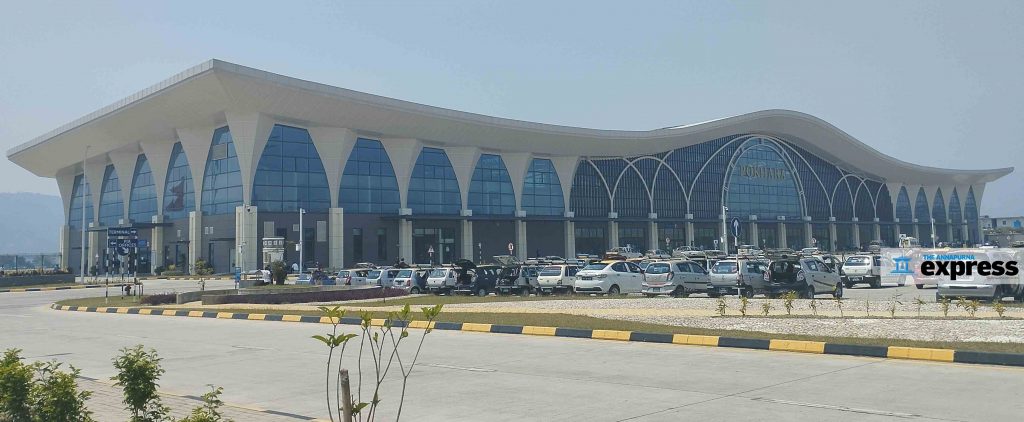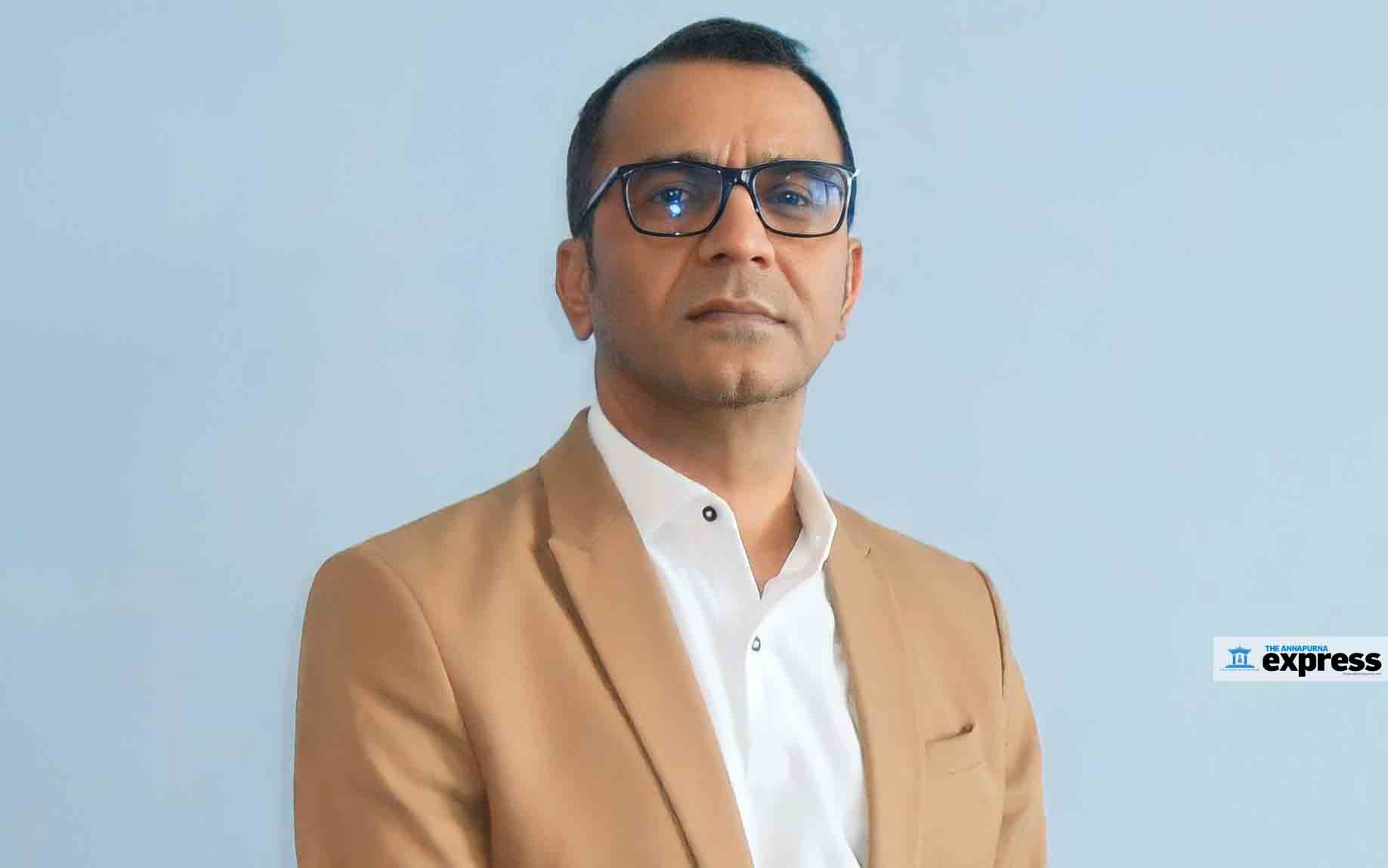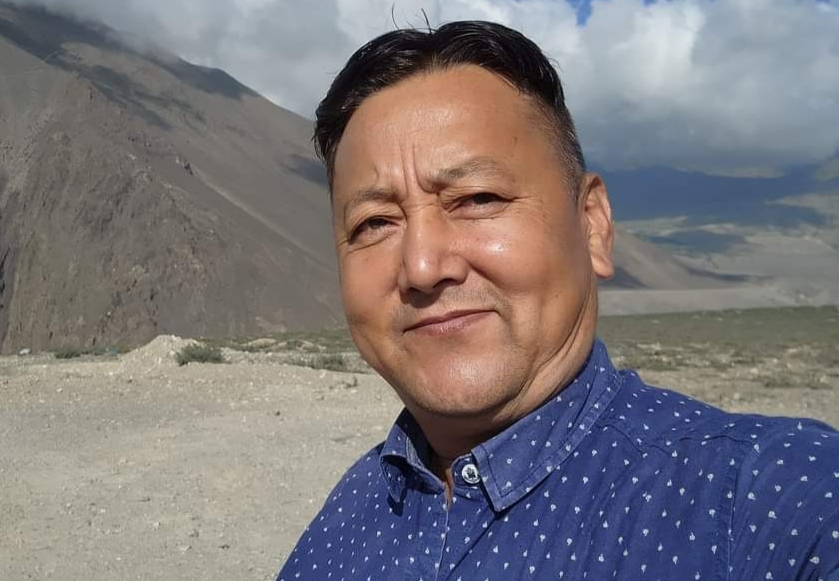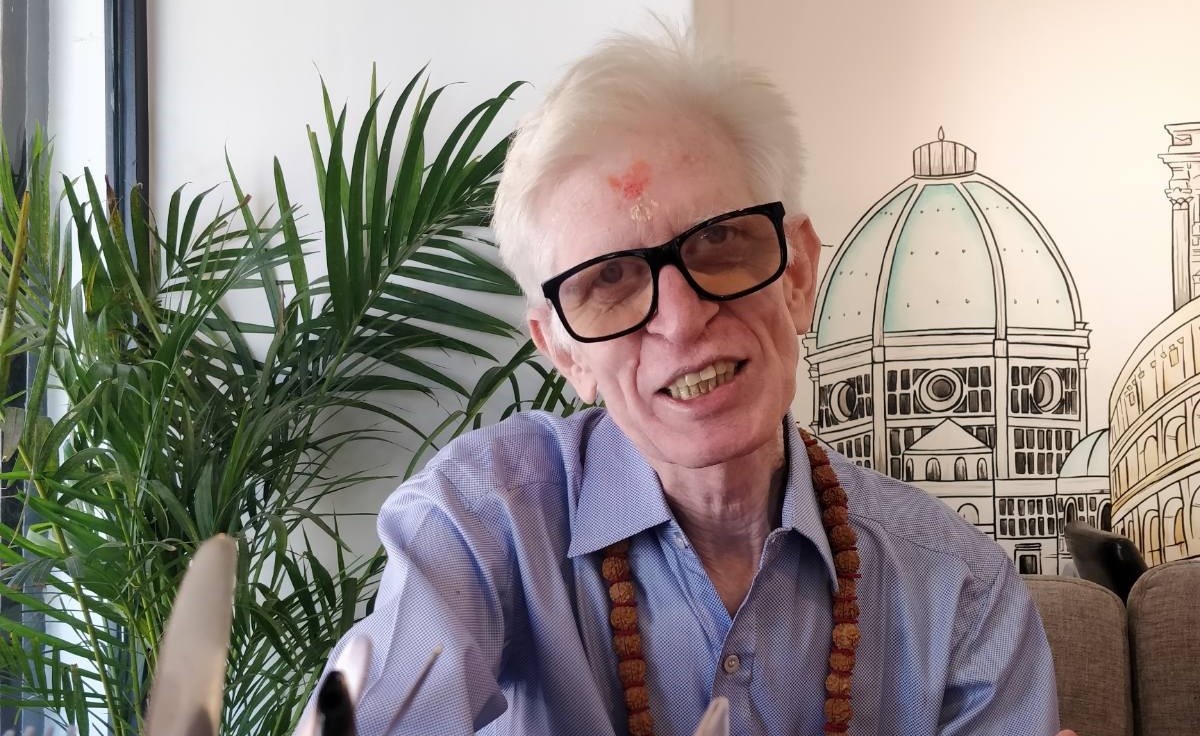Tika Prasad Dhakal: Gaining the trust of democratic world is key
Tika Prasad Dhakal is an expert on international relations, transitional justice and geopolitics, who served as an advisor to former President Bidya Devi Bhandari. These days he is busy participating in public discourse on Nepal’s long drawn-out transitional justice process. Kamal Dev Bhattarai of ApEx speaks to him on various issues surrounding the bill to amend the transitional justice law, which is currently in Parliament.. The transitional justice bill has drawn widespread criticisms. What is your take on this? Regrettably, I must say that there has been scant advancement in satisfying the fundamental legal standards in the amendment bill. It has many faults both in its process and content. The government should have transparently assessed more than a dozen Supreme Court (SC) verdicts and documents of the past fifteen years, and sought input from the affected parties, particularly the victim community. But the ruling coalition rushed a deeply flawed bill in Parliament, which came in response to the Supreme Court’s decision to accept a case against Prime Minister Pushpa Kamal Dahal for conflict-era human rights violations. So this reactive bill neglects several crucial judgements and benchmarks established by the court. It is now upon our Parliament to address the shortcomings in the bill. What are the main sticking points of the bill? There are two perspectives to consider when evaluating this bill. While many of us tend to focus solely on its content and compare it to the ‘Enforced Disappearances Inquiry, Truth and Reconciliation Commission Act, 2014’ (TRC Act), a more accurate approach would be to examine it in light of the Supreme Court’s judgment, from where the very obligation of this amendment origins. However, regardless of the approach, the bill contains several flaws outlined into five areas. The first is related to the security and privacy of cases. The bill fails to include provisions that ensure witness protection, nor does it guarantee the safety of plaintiffs. Without security, witnesses and victims could be intimidated and silenced during the truth-finding process. The second area of concern is gender sensitivity. Any inquiry or investigation into serious human rights violations must take into account the needs of victims of rape and sexual violence. These crimes cannot be forgiven, and it is also important to protect the privacy of the victims. But in a clear violation of the Supreme Court’s rulings, the amendment bill fails to address these issues. The third issue is about the definition of crimes. The bill attempts to classify conflict-era criminalities under two categories: human rights violation and serious violation of human rights. The nine types of crimes listed in the first group are made amnestiable, including murder, torture, sexual violence, and hostage-taking. Crimes in the second group are unamnestiable. The group include four types of crimes: merciless killing of an individual after cruel and inhuman torture, rape, enforced disappearance, and inhuman and cruel torture. This is unacceptable, as it essentially makes some murders pardonable and says only select types of murders may be prosecuted. This amendment proposal sends the message that many of the murders during the Maoist conflict were justifiable. Furthermore, the section of the definition of enforced disappearance has been removed from the TRC Act, making any investigation impossible. The fourth issue is related to the formation of the transitional justice commissions. Lessons learned from the failure of the past commissions should be taken into account. A more transparent and vettable appointment process should be adopted. And finally, the law must not discriminate against the victims, including former child soldiers and the families of affected security personnel. The Maoist party is fearful of any mention of 'child soldiers' used in its rebel armed units. For this, the law may use less contentious terminology as used in United Nations Mission in Nepal’s verification documents, such as 'combatants who were late recruits and minors.' A more holistic view of the law should address the four pillars of transitional justice: truth, justice, reparations, and guarantee of non-recurrence. Could you please elaborate on the international dimensions of Nepal’s transitional justice process? Article 7 of the Comprehensive Peace Agreement mandates that the Maoist party fully adhere to the ‘basic principles and values of the Universal Declaration of Human Rights, International Humanitarian Law, and Human Rights Law.’ Hence, any transitional justice law created today will be evaluated against this provision of the peace agreement. The Article 7 validates the voice of the international community on our transitional justice process. In the recent times, our weaknesses hitherto have been picked up by the geopolitical actors to influence our domestic politics from making or breaking the coalition to the formation of the governments. As someone who has worked in this field for several years and someone who comes from a family of martyrs, I believe that gaining the trust of the democratic world, particularly India, is crucial for our transitional justice efforts. After all, the legitimacy of the Nepali Peace Process in 2005-2006 was achieved through India's support and facilitation. Global recognition of a successful transitional justice process, which is also the final stage of the peace process, depends quite largely on the backing of the democratic world. However, we must remain vigilant against any attempts, domestic or external, of geopolitically weaponizing this process. How do you see the commitment of major political parties? The Maoist party, which has once again taken the reins of government after the peace process for the third time, has consistently disregarded transitional justice, primarily out of fear of potential prosecution of its leaders. The Nepali Congress is no different. The party is shamelessly putting their political interests ahead of justice. And let's not forget the CPN-UML, who tried to push the process forward by reforming the commissions in 2020, which failed miserably. It is high time the major political parties reeducated themselves on transitional justice and rose above the interests of individual leaders. So what is the way forward for our transitional justice process? Moving forward, the amendment bill must be referred to the ‘Committee on Law, Justice, and Human Rights’ of Parliament. This will create space for a broad reevaluation and consultation with the victim community and other stakeholders. The law must be informed by a comprehensive assessment of the peace process. In upgrading the content of the bill, all past judgments of the Supreme Court must be evaluated. By doing so, the House committee will be in a position to correct both the process and the content of the bill. Drafting a competent law will require at least three to four months of honest work. We should be able to afford a few months to repair a process that has been delayed for 16 years. To successfully conclude any transitional justice process in the world, a law must be drafted that provides an unquestionable framework for the commissions to balance judicial aspects through collective measures of reparations, truth-seeking, and institutional reforms. However, our government is attempting the opposite: drafting a seriously compromised law and forcing it through the majority. This approach is a recipe for disaster. Politically, an agreement based on democratic ethics among the three major political parties—CPN UML, NC, and Maoists—is crucial for the successful conclusion of this process. One could argue that the ruling coalition has a majority and may pass the flawed law. The principal opposition UML's role becomes critical in this scenario. As a signatory of the Comprehensive Peace Agreement, an isolated CPN-UML may declare in the House that it would reopen all conflict-era cases as soon as it comes to power. At this point, the entire transitional justice process would suffer a huge setback, leading to a deeper crisis of confidence. We should be prepared for a situation like in Argentina, where the transitional justice process had to be restarted with a prosecutorial approach from scratch within five years of introducing the Full Stop Law in 1998. UML’s position should, therefore, deter the ruling coalition from moving unilaterally. Nepal's transitional justice process will move towards resolution as soon as these three major political parties express a collective commitment in the parliament.
Takatoshi Nakamura: Time has come to focus on enhancing information security
Takatoshi Nakamura, an engineer by profession, has been in the internet services business for over two decades. He currently is the CEO of Cipher-Core, Inc., a Japan-based company that provides information security services, end-to-end protection technology for communication systems and remote authentication technology for internet-of-things (IoT) systems, among others, to its clients across the globe. ApEx talked to Nakamura about the scope of internet business, new technology, security and how Nepal can benefit from it. Excerpts: What is information security? Information security is basically a process to secure information from various kinds of cyber threats such as information theft, fake information, pretending to be someone else, etc. Many technologies and online systems can be manipulated by hackers and engineers try to protect them considering all the loopholes. We have built a system that is secured at the topmost level. Our information security diagnosis software can secure both hardware and software. Why is it important? A lot of things are based on the internet. And, if the internet is not secured, your information is also not secured. And it doesn’t only matter for an individual, but for society, companies, governments and the entire world. In the world of finance, various kinds of automation and networking efforts have been made. However, due in part to inadequate information security technology, there have been huge losses in both internet banking and internet security. Furthermore, the development of quantum computers in recent years is accelerating further weakening information security. However, if perfect encryption, which has been developed in recent years by our company, is used, everything in finance will be safe. Remittances, payments and storage are no exception. How is the global scenario of information security? The powerful countries in this world actually determine the level of information security for ordinary people. They don’t want a higher level of security as it might turn into a security threat to them if terrorist groups start using higher information security. So, as of now, the scenario of this world is the same. All countries and people have almost the same level of information security. How is your company working to counter this situation? We want to break the syndicate and provide the topmost level of information security products to our clients. Many people and organizations have started inquiring about our products and I hope, sooner, we will be able to secure the internet and the information because globally, around USD 2 trillion is annually lost due to breaches of data. I have been inventing internet technologies since 2002. My inventions are ‘Prototype of encryption device’, ‘Encrypted communication remote I/O’, ‘Encrypted communication device (CP-S1)’, ‘Remote Monitoring System for Nagoya city’, and ‘4th generation PV (photovoltaics)’, among others. With all these experiences and experiments, I can guarantee that our company will provide the topmost information security. Can you please explain about your products? We have the ‘Cipher Security Information Security Diagnosis Business’ where we conduct an information security diagnosis for all businesses that handle confidential information, including financial institutions and auditing firms, and provide guidance and support for the implementation of countermeasures using the seven encryption-related products developed by our company. Our company is an IT support business, and we design and sell products as a subsidy application business. We also have the ‘Cipher Tunnel and Cipher Messenger Business’. Information exchange on the internet these days is extremely vulnerable in terms of information security, whether it is email, social networking services (SNS), or cloud storage, and is completely undisclosed to the business operators that provide these tools. This tool provides the ‘Cipher Tunnel’ software for confidential communication and remote authentication functions to all businesses that handle confidential information, such as finance and medical care, as software for users themselves to perform confidential communication and confidential messaging. Currently, we are working on the ‘Cipher Core Securities Platform’ where we are aiming to provide the software that issues and manages ‘digital securities’ with completely confidential storage, communication, and complete remote authentication functions. Real-time settlement of digital securities directly on the internet enables high-speed, high-turnover transactions and contributes to a high-density economy. How can Nepal benefit from information security? If your country has a secure internet, your national security will be in a better position. This will definitely help boost the investment environment in the country. And if your country uses our products, we will help develop your own application, product, technology and system. You can then sell those products to other countries, which will boost the national economy. Nepal will be a showcase for all the products with better internet infrastructures. It will also need a complete internet which should be strong enough and non-breakable. How will the internet connect the world as a global village? Since the opening of the internet for the private sector in the early 1990s, text, music, images and video have crossed all boundaries in an instant. The first stage of the internet has permeated every corner of the world as an ‘Information Service Platform’. Human activity is not limited to information exchange. Business transactions on the internet have also exploded and have fundamentally changed conventional business practices. When we will be more safe and secure to communicate and share our things, it will automatically help to form a global village with shared values.
Sher Bahadur Pun: Mask the coronavirus away
The Ministry of Health and Population reported 121 new cases of coronavirus from across the country on Wednesday (April 12), against 106 cases on April 11, 124 on April 10 and 55 on April 9. Per the latest report of the ministry, 11 people are under treatment at intensive care units of hospitals in the country, whereas three are under ventilator support. The number of active coronavirus infections has reached 445, the ministry said on Wednesday, adding that one patient had died in the past 24 hours, making it the second consecutive 24-hour period that saw a coronavirus death. Keeping in view a steady rise in the number of coronavirus infections of late, ApEx talked to Dr Sher Bahadur Pun, chief of the Clinical Research Unit at Sukraraj Tropical and Infectious Disease Hospital, Teku about. Excerpts: Why do you think coronavirus is increasing lately? With the restrictions put in place across the world lifted, people are traveling. This has increased the number of infections. People have stopped wearing masks and taking other safety measures. Amid this, a new Omicron variant of coronavirus—XBB.1.16—has been spreading in India. Uninterrupted cross-border movement has been attributed to the rise in cases in Nepal. The XBB.1.16 sub-variant was confirmed in 10 of 24 swab samples of the infected on which whole-genome sequencing was carried out in Nepal recently. People having Covid-19 symptoms are not testing and isolating themselves. Election campaigns and rallies and religious festivals are being held in many places. All these are responsible for the increasing number of cases. How infectious is this variant? The new variant is comparatively less lethal. It spreads quickly but does not cause serious complications. However, people with underlying health conditions, the elderly population and individuals with respiratory conditions are prone to the infection and its severity. Runny nose, fever, sore throat, loss of appetite, abdominal discomfort and headaches are some of the symptoms of the XBB.1.16 variant. The hospital however has not seen a large number of cases. Though there are cases in the community, they have not reached the hospitals. Had there been severe infection, people would have visited the hospitals. Who could be under risk? Various reports suggest that this variant can evade immunity gained through vaccination. Patients with comorbidities such as elderly population, or with cardiac conditions, previous pulmonary issues such as asthma, tuberculosis, diabetic and chronic kidney disease patients are at high-risk of infection. There is no need to panic. We have had a mass vaccination program. Despite this, many have contracted the virus. However, one must continue to follow the Covid-19 appropriate behavior such as hand hygiene and masking. High risk population segments should take more precautions. What should be done to prevent infection? One must isolate themselves if s/he has symptoms of the disease and see the physician at the earliest to avoid any complications. It has been proved that vaccination prevents the severity of the infection. People must take booster doses of the vaccines apart from coronavirus appropriate precautions. People with comorbidities should take additional precautions. People should avoid congested, poorly ventilated spaces. They must wear masks. Those who have not received the vaccine should take the vaccine. What should be an individual and government’s role in controlling the infection? Precautions like handwashing, respiratory hygiene, proper ventilation at home and the workplace, and masking up in crowded places are crucial. An individual must practice them. These precautions will also shield individuals from the flu and other viruses. Caution should be taken while touching nose and mouth, and afterward. Those with symptoms of coronavirus must isolate themselves from others. The government must justify the importance of vaccines and vaccinate people.
Bikram Raj Gautam: Profit should not be calculated with the money airport makes
The Pokhara International Airport (PIA) was inaugurated on 1 January 2023 by Prime Minister Pushpa Kamal Dahal amid much fanfare. However, the business of the third international airport in Nepal has not been as expected since its inception which has put a question mark on the viability of the new airport. Critics argue that the airport is a debt trap project as it was constructed with a $215m loan from China’s Exim Bank in 2017 and not a single international flight has been operated from the airport ever since its inauguration.
Pratik Ghimire of ApEx sat down with Bikram Raj Gautam, Chief of PIA to talk about the business the airport is up to. Excerpts:
Can PIA make a good business?
Definitely. We have a target market. We can target the Indian and Chinese markets as many tourists from our neighboring countries visit Nepal and many of them come to Pokhara. Also, we can target Nepalis who are in the Gulf countries for employment. We can also connect to the United States, Australia, the United Kingdom, and other countries where Nepali students go for higher studies. Data shows that around 40 percent of tourists who visit Nepal come to Pokhara. We have the opportunity to connect them directly to Pokhara. So, there is no question about the viability of PIA. I have spent around 26 months in this airport, and with my experience and research, I can say that there is enough space for business.
On the last World Tourism Day, we invited representatives of many international airlines operating in Nepal. We’ve found that they are positive about the opportunities and possibilities of PIA. They are also doing their part of the homework and research for their operation from PIA.
It’s not that nothing has happened. It is natural for entrepreneurs to look for someone who can initiate operations in new business and others will jump by analyzing the initiation. The same thing is happening here. Moreover, a business is an environment. To run it smoothly, every small thing matters. From the legal policy to the behavior of flight attendants, everything matters to help PIA run smoothly.
Each of us should take ownership of this airport as it will help to boost the regional and national economy. Everyone should contribute to the maximum utilization of this airport.
Has there been enough lobbying to run this airport?
Yes. All tiers of the government have been doing as much as they can. All other stakeholders concerned are also doing whatever they can do from their levels. But what I have felt is, we have to be united and have the same voice regarding the PIA, and then only the result will come. For example, the private sector and government should share their plans and problems with each other and should work together.
Also, nothing is more effective than word-of-mouth promotion. For instance, for my foreign friend, my recommendation to visit Nepal is more effective than any kind of other promotional or advertising material. So, we should keep up to support PIA in these ways. 
Critics say that the loan that Nepal received to develop PIA can actually turn into a debt trap for the country. How do you view this argument?
The construction of this airport cost around Rs 22bn. We won’t be able to make a profit instantly as it is a long-term investment. The profit of PIA should not only be calculated in terms of the airport’s earnings. But rather we should see how much help the airport provides in terms of services to passengers, small and large-scale tourism businesses and the development of Pokhara city, among other factors.
We provide domestic flight service from this airport for 18 hours a day. Around 3,000 passengers are getting services from here daily. From the domestic operation, we earn around Rs 300m annually. And as soon as we start a few international flights, we can easily earn Rs 1bn annually. So, the development of PIA is not a ‘debt trap’. The Civil Aviation Authority of Nepal (CAAN) also analyzes our business.
There have been issues with birds. Is the airport technically in a safe location?
Pokhara is home to a lot of bird species. Among them, there are around 108 bird species around the PIA vicinity. We can’t imagine the sky without birds. It’s a part of nature and the same thing applies in all the airports across the globe. This issue is not with us only. We have to ensure that the planes fly at a distance from birds.
We are doing our best in this regard. From regular patrolling to using scaring devices, reflectors and trimming grasses, we have been doing everything at our disposal. I think not many airports in the world use better systems for the management of birds like us. Since the start of the operation of the airport, the activities of birds have significantly reduced. However, we can’t have skies free of birds.
How do you ensure that PIA is among the technologically best airports in Nepal?
We have been using top-notch technology and equipment that an international airport needs to have. There has been no compromise in this respect. For example, we have Instrument Landing System technology in PIA that no airport in Nepal has used. The Gautam Buddha International Airport has this technology too, but they haven’t used it yet. Similarly, we have many other similar technologies with international standards.
Then why is the public negative about the airport?
It’s all due to sentiment. Initially, everyone was positive about this project. Not only the ordinary people but also the private sector, media, and all stakeholders supported us. But after the recent plane crash of Yeti Air, everyone started having second thoughts about the airport. Yet, there was no issue on our side. All of our technology, equipment and system are in perfect condition. Soon after the inauguration of the airport, people saw the crash near the airport which affected their sentiments to a great degree. But we are growing and everything will be better with time.
Which international airlines are in contact with PIA for flight operations?
We are in regular touch with Korean Air, Jazeera Airways, Thai Smile Airways and Fly Dubai. Yet, there is nothing agreed upon as of now.




















